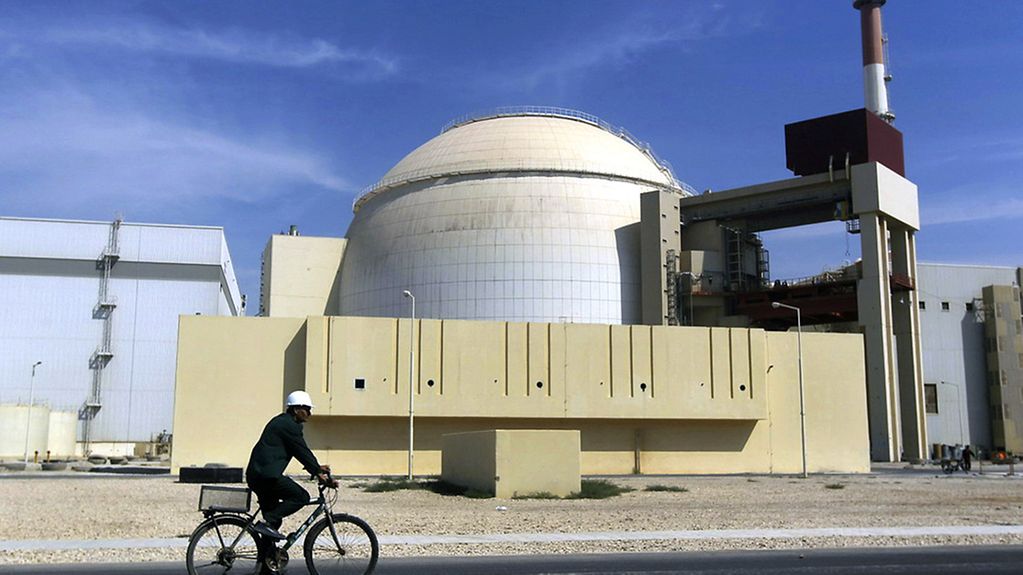Iran's nuclear programme
Even after the withdrawal of the USA from the nuclear agreement with Iran, the heads of state and government of France, the United Kingdom and Germany intend to uphold the agreement. Federal government spokesperson Steffen Seibert reported that Germany regretted the decision of the US President.
2 min reading time

In the 2015 Vienna Agreement, Iran undertook to give IAEA inspectors access to its nuclear plants
Photo: picture alliance/AP Photo/Majid Asgaripour
French President Emmanuel Macron, British Prime Minister Theresa May and Chancellor Angela Merkel emphasised their continuing commitment to the agreement, said government spokesperson Steffen Seibert at the government press conference.
US President Donald Trump had announced shortly before this, that the USA would withdraw from the nuclear deal and reimpose sanctions on Iran.
In a joint statement, Germany, France and the UK clearly stated that Iran must continue to meet its own obligations under the deal. The IAEA must be able to continue to carry out its long-term verification and monitoring programme without restriction or hindrance.
Germany advocates upholding the nuclear deal
The nuclear deal is based on United Nations Security Council Resolution No. 2231. This continues to provide the binding international legal framework for the resolution of the dispute over Iran’s nuclear programme, said the government spokesperson. "In our view, all sides are called on to continue to support the full implementation of this resolution."
"I would also like to stress that major challenges exist in conjunction with Iran," said Steffen Seibert. "We are watching with great concern the destabilising role played by Iran in the region, as well as its ballistic missile programme. The question also arises as to what will happen with Iran’s nuclear programme on expiry of the restrictions."
The Vienna nuclear agreement, also known as the Joint Comprehensive Plan of Action, was concluded in 2015 by USA, Russia, China, France, the United Kingdom, Germany, the European Union and Iran. Under the provisions of the agreement, Iran undertook to renounce any form of research into nuclear weapons until 2025 at the earliest, as well as pledging to permit inspections. In return, the sanctions imposed on Iran are to be gradually lifted. The agreement put in place an unparalleled radical and robust IAEA monitoring system.
Risks for the region
Heiko Maas, Federal Minister for Foreign Affairs, sees many risks for the region if the nuclear deal should cease to exist. "The initial response from Iran is that Iran too will continue to honour its commitments under the agreement. Over the next few days we will thus be engaging in level-headed and rational talks with one another." Heiko Maas added that there are further expectations of Iran, in conjunction with the ballistic missile programme it is developing. "Iran’s role in Syria must be described as problematic at least," said the Federal Minister for Foreign Affairs.